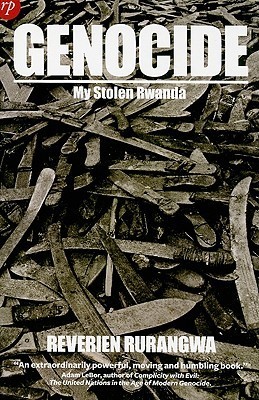
An Ordinary Man: An Autobiography
Book Description
In a land torn apart by hatred, one man stood between life and death for thousands. Paul Rusesabagina’s gripping memoir reveals the harrowing choices made during the Rwandan genocide, as he transformed his hotel into a sanctuary for the imperiled. With unimaginable courage, he navigated a world of chaos and moral dilemmas, driven by love and humanity. Readers are drawn into heart-pounding encounters, as alliances are forged and lives hang in the balance. This is not just a story of survival; it’s a testament to the strength of the human spirit. What would you risk to save a stranger’s life?
Quick Book Summary
"An Ordinary Man: An Autobiography" by Paul Rusesabagina recounts his extraordinary efforts during the 1994 Rwandan genocide. As manager of the Hôtel des Mille Collines in Kigali, Rusesabagina sheltered over 1,200 Tutsi and moderate Hutu refugees from slaughter. The memoir is not only a riveting personal account of one man’s courage but also an examination of the genocide’s roots, the failures of international intervention, and the everyday choices that define morality in times of crisis. Through negotiation, empathy, and remarkable resolve, Rusesabagina shows how ordinary individuals can confront unimaginable evil. His story is a profound testament to the power of compassion and the possibility of hope amidst the darkest circumstances.
Summary of Key Ideas
Table of Contents
Moral Courage in the Face of Genocide
Paul Rusesabagina’s life before the genocide was fairly typical—he grew up in rural Rwanda, became a hotel manager, and lived a relatively peaceful existence despite simmering ethnic tensions. His upbringing taught him the values of respect, tolerance, and responsibility. These early experiences proved crucial during the crisis, shaping the resilience and empathy that guided his actions when Rwanda descended into violence. His understanding of the country’s ethnic divisions helps the reader grasp the underlying causes of the genocide, as he details the manipulation of differences between Hutus and Tutsis over the decades.
The Power of Negotiation and Diplomacy
When the genocide erupted in 1994, Rusesabagina realized his position at the Hôtel des Mille Collines afforded a unique opportunity to offer protection to those being targeted. Using ingenuity and quick thinking, he turned the hotel into a sanctuary, sheltering over a thousand people from imminent death. However, he was constantly challenged by threats from the militia, government forces, and shortages of resources. He describes negotiating with generals, bribing with money and liquor, and calling in favors to stave off attackers—every decision made under the shadow of mortal danger.
The Failures of the International Community
The tension throughout the memoir arises not only from physical threats but also from the moral dilemmas faced daily. Rusesabagina details the extraordinary courage and compassion required to treat strangers with humanity, even when self-preservation might have dictated otherwise. His story emphasizes that ethical choices and decency are possible—and necessary—even during horrific times. In contrast, he dramatically recounts the apathy and inaction of international agencies and foreign governments, pressing readers to consider the consequences of global indifference.
The Roots and Mechanics of Hate
Rusesabagina’s strategies exemplify the power of “ordinary” skills such as negotiation, communication, and diplomacy, which proved more effective than violence. He consistently sought to defuse confrontations through dialogue and persuasion, showing how words and relationships could, at times, hold back the tide of brutality. His personal narrative thus becomes a wider lesson about the potential within every person to effect change through ordinary virtues exercised extraordinarily.
Ordinary People, Extraordinary Actions
In the aftermath, Rusesabagina reflects on the enduring scars of genocide—both personally and nationally. He discusses the process of reconciliation and the challenge of rebuilding trust after such devastation. The memoir closes with a call to remember and to act in solidarity with those facing injustice. Ultimately, "An Ordinary Man" is a plea for vigilance against hatred and a powerful reminder of the extraordinary difference even one person can make in the darkest of times.
Download This Summary
Get a free PDF of this summary instantly — no email required.





